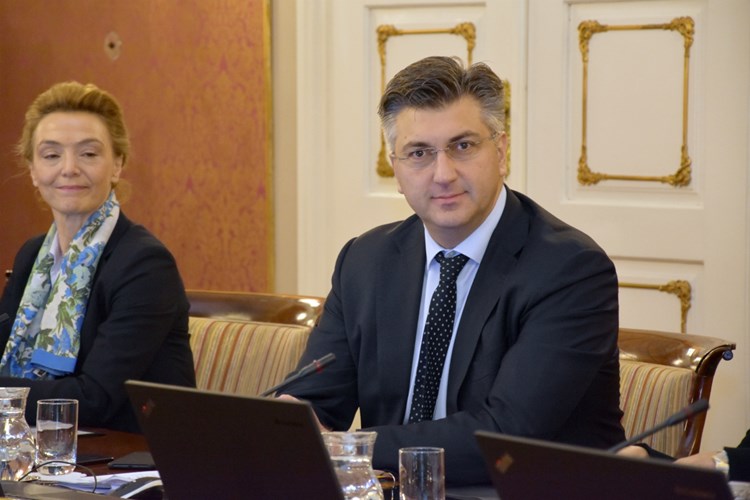


We remain above the forecast for the EU average and what is especially good is that the their projections match the projections we made in July and later when planning the budget and our projections for 2019, Plenkovic said at the start of a cabinet meeting.
This is a big encouragement for all our achievements in the economic and fiscal policies over the past year and I believe we will continue in line with that, he added.
He said the Commission noted that private consumption was a big engine of growth and employment, adding that they were the clear effects of the tax reform, the tourist season and the pay rises. "We can be very satisfied with this. The global economy is growing, the European economy is growing, and we see that the economy in Croatia too is growing."
Commenting on the indebted Agrokor conglomerate, Plenkovic said government services were examining the relevant documentation. "When that process is over, we will decide on the possibility of further action."
The public's interest in war reparations is justified and Serbian President Aleksandar Vucic's visit next week will be an opportunity to discuss that matter, which is covered by the agreement on the normalisation of relations, Croatian Prime Minister Andrej Plenkovic said on Thursday, adding that the protection of ethnic minorities was another important issue.
Zagreb wants the talks Vucic will hold in Croatia to be "as concrete and as substantial as possible," Plenkovic said at the start of a cabinet meeting, underlining the protection of minorities, the war missing, judicial cooperation, the border, property restitution and war reparations.
He said that as a young diplomat he took part in the talks which led to the signing of the agreement on the normalisation of relations in Belgrade on 23 August 1996, adding that Article 7 stipulated that an agreement on compensation for all the destroyed, damaged or missing property must be signed within six months.
"Unfortunately, that agreement was never signed," he said. That obligation could be discussed during Vucic's visit to Zagreb on February 12-13, he added. "Croatia's interest that we see to that, is very clear and justified."
Another important issue between Croatia and Serbia is compliance with obligations on the protection of ethnic minorities in line with a bilateral agreement signed about 15 years ago.
Plenkovic said the state secretary at the Central State Office for Croats Abroad visited Serbia last week and talked about ethnic minority rights.
A bilateral commission dealing with outstanding issues between the two countries is meeting today.
Text: Hina